|
"The development of language services can help to remove communication barriers in international standardization efforts and enable more extensive and in-depth participation of standardization professionals in the exchange of international standardization scenarios." Recently, at the International Conference on Standardization of Language Resources and Translation and Interpreting Services (2018) held in Hangzhou, Zhejiang Province, More than 200 experts and representatives from standardization research institutions, translation associations, universities and language service enterprises discussed the standardization and sustainable development of language services.
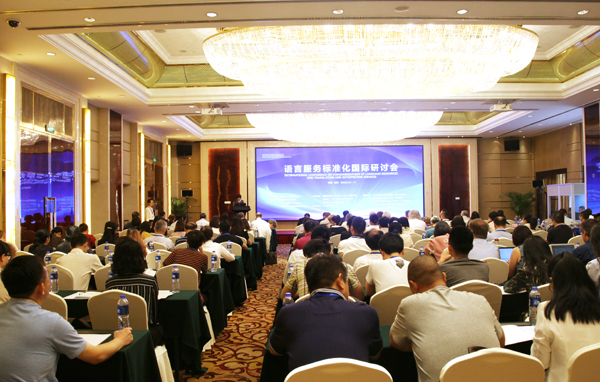
The event integrates industry, education and research in the field of language services, and is divided into one main forum and four sub-forums. Among them, the theme of the main forum is "language service standardization and industry development" and "language service needs and quality". Laurent Romary, Chairman of ISO / TC 37, Huang Youyi, Executive Vice-President of the China Translation Association, Monika Popiolek, President of the Polish Association of Translation Enterprises, and Liu Zhiyang, Research Fellow in the China National Institute of Standardization, delivered a keynote speech.

Laurent Romary, Chairman of ISO / TC 37
"in today's global economic integration, international exchanges and international trade are increasingly frequent, and the demand for language services is particularly urgent." In her keynote speech, Ms Liu Zhiyang said: "in terms of standardization exchanges at the international level, whether it is the exchange of various international conferences, seminars and exchanges, or the exchange process of various work scenarios, English as a language of communication basically occupies a dominant position. Although Chinese society attaches great importance to English education, Chinese experts still have language difficulties and obstacles in the process of substantially participating in international standardization. "
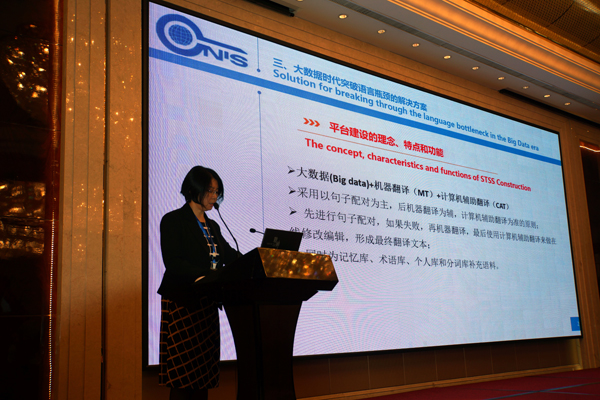
Liu Zhiyang, Research Fellow of China National Institute of Standardization
Experts say that in the era of big data, the current intelligent translation can effectively help people overcome the language barrier, but the accuracy and logic of big data statistical machine translation are not ideal for the specialized field, especially for the standardization field. Standardization languages often need to be more rigorous and professional, and standardization of language services in the area of standardization is also important.
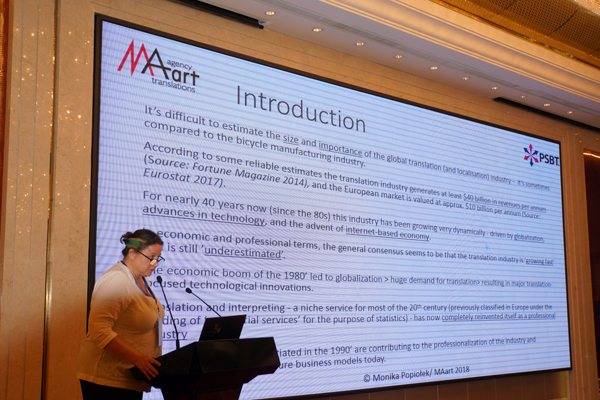
Monika Popiolek, President of Polish Association of Translation Enterprises
Liu Zhiyang said that in the first batch of National Key R & D Projects launched in 2016, "Research and Application of Common Technologies on National Quality Infrastructure" (NQI), the task of "English-Chinese Bilingual Corpus in Standardization and Ontology Knowledge System" was set up. The purpose of this task is to build the infrastructure for the internationalization of Chinese standards, to create an authoritative national bilingual corpus in standardization and intelligent translation cloud platform, and to provide a strong infrastructure guarantee for the construction of "Belt and Road" in China. At present, the task has completed the construction of English-Chinese bilingual corpus in standardization and intelligent cloud translation platform.
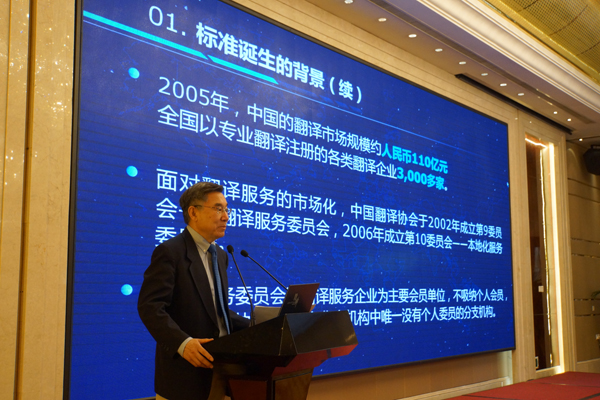
Huang Youyi, Executive Vice-President of China Translation Association
It is understood that the project, as the first professional English-Chinese corpus in standardization and intelligent translation cloud platform in standardization in China, the corpus has included 42 million Chinese characters and 2200 English words, all of which come from national authoritative standardization bodies and regular publications, which ensures the accuracy and authority of the corpus, can meet the domestic and foreign industry standards text and standardization activities of the rapid translation requirements, filling the gap of domestic corpus and rapid translation platform in standardization field. The cloud platform integrates the functions of "big data + machine translation (MT) + computer assisted translation (cat)". Compared with manual translation, the cloud platform can achieve 100% accurate translation of standard formulaic sentences, and add the function of online editing compared with pure machine translation. It improves the efficiency and quality of translation to the maximum extent.
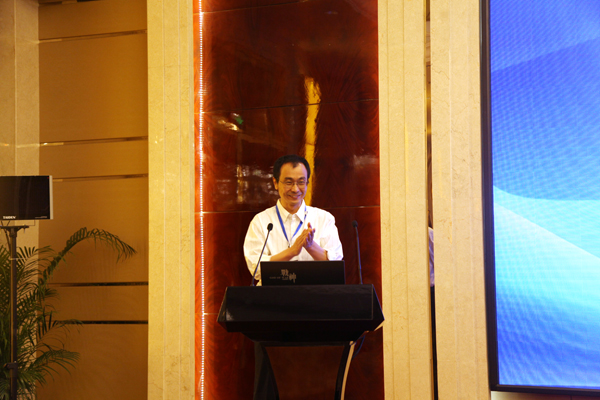
Zhou Changqing, Secretary of ISO / TC 37
At the four sub-forums of the conference, The experts and representatives discussed "the standards and implementation of translation and interpretation at home and abroad", “the management of language resources and terminology for manufacturing and in the full life cycle of a product”, "the present situation and development of translation technology". Monika Popiolek introduced the standard ISO 17100 and the significance of its implementation by translation service providers; Hitoshi Isahara, Professor of Toyohashi University of Technology, shared ISO / TC 37 controlled language standardization. At the Roundtable of Chinese and foreign experts on language service education, the experts discussed the related topics of translation, interpretation education and training.
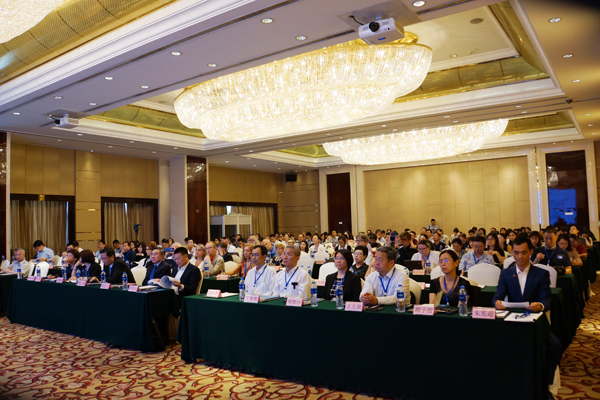
Experts said that the development of language services not only directly related to the speed of participation in the process of globalization, but also related to the depth and breadth of participation. With the development of language service industry and technological progress, standards will play a greater role in promoting world connectivity.
(Source from China Quality Daily)
|






